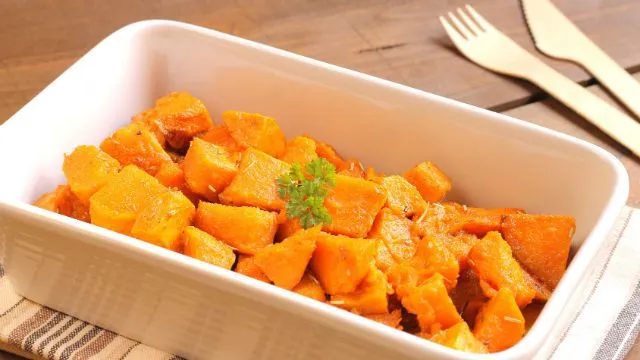
- Share on Facebook1951
- Share on Pinterest
- Share on Twitter
Your gut is one of the most important systems in your body. It connects your outer world with your inner world and processes all the food you eat in some way.
It absorbs nutrients you need to fuel and repair your body. It is the center of your immune system. It manufactures neurotransmitters and other proteins you need. It is one of the beginnings of chronic diseases.
You need your gut to function well. If you have a health problem, most likely you can find a correlation to your gut and it’s breakdown and dysfunction. One way to keep your gut healthy is to feed it what it needs. Here is a newsflash… your gut does not need sugar-laden, fast or processed foods. Your gut needs real food that are easy to be broken down and used by the body.
Here are 6 such foods that will supercharge your digestive system.
Garlic
Garlic is what is known as a prebiotic. It feeds healthy bacteria in the gut while destroying the unhealthy bacteria. It acts like a really nice housekeeper. It takes away all the dust and leaves fresh folded towels on your bed with a couple of mints. Not only does it do a really great job taking out the trash but it leaves a refreshing surprise behind.
Garlic is best consumed fresh and raw. For optimal digestive health, chop up a teaspoonful each night before going to bed. You will not, surprisingly have garlic breath or a garlic smell seeping out your pores but you will have a really healthy gut.
Asparagus
Asparagus is widely known for its digestive health benefits. Also a prebiotic – asparagus is rich in inulin which is a type of carbohydrate also known as a polyfructan. This carbohydrate is not like the ordinary carbohydrate that gets broken down in the digestive tract. Rather inulin passes through the digestive tract all the way to the large intestine.
It arrives in the digestive tract, unbroken where it becomes a food source for friendly bacteria. So, in a sense when you eat asparagus you are feeding your friendly bacteria. Research shows that eating asparagus on a regular basis helps with nutrient absorption and also lowers the risk of colon cancer and allergies.
Bananas
Bananas are a favorite fruit of many people and fun to eat. But, they are also incredibly beneficial to the digestive tract. They have powerful antacid effects which help to protect the stomach from ulcers and ulcers damage. Studies have shown that mixing bananas in milk suppressed acid secretion.
Bananas have even been found to protect animals’ stomachs from wounds. Bananas trigger cells in the stomach lining to create a thick and protective mucus barrier that keeps stomach acids out. In addition, bananas get rid of bacteria that can cause stomach ulcers.
Bananas contain soluble fiber that helps to move foodstuff through the digestive tract and ease constipation and are an excellent source of potassium which helps to regulate heart function and fluid balance.
Consume bananas when they are moderately ripe – the riper they are the greater impact they will have on the glycemic index.
Apples
Research indicates that an apple a day will keep digestive bacteria healthy and plentiful. Studies on laboratory animals indicate that apples have an impact on two bacteria in the large intestine which creates positive changes in metabolism in the intestine.The metabolic changes provide more fuel for the for the cells in the large intestine. Scientists expect that similar results will be found in humans very soon.
Apples, in their whole form, are also a good source of dietary fiber. Fiber in apples combines with nutrients in the apple to protect for heart disease and regulate blood fat levels.
Beets
Both beets and greens are loaded with fiber which makes them great for maintaining regularity. They also do a great job keeping the digestive tract lining and smooth muscles functioning at top speed. Beets provide a huge nutritional punch and are loaded with potassium and magnesium.
The greens are tasty as well and are a rich source of iron, calcium and beta-carotene. Steam beets for about ten minutes and greens for about 5 minutes for best taste. Be careful not to eat beets more than twice a week as they may weaken the enamel on your teeth.
Sweet Potatoes
Sweet potatoes are one of the most nutritious vegetables. They contain important vitamins and minerals including vitamin B6 , potassium, and iron. Sweet potatoes also provide a substantial amount of dietary fiber, especially if you leave the skin on. There is more fiber in one medium-sized sweet potato than can be found in a bowl of oatmeal.
 This fiber increases bulk in the colon and may dilute carcinogens that are found in food or formed as a result of digestion. The vitamin A in sweet potatoes helps to maintain strong tissues and a healthy immune system. It also helps protect us from cardiovascular disease and has been shown to reduce the risk of stroke.
This fiber increases bulk in the colon and may dilute carcinogens that are found in food or formed as a result of digestion. The vitamin A in sweet potatoes helps to maintain strong tissues and a healthy immune system. It also helps protect us from cardiovascular disease and has been shown to reduce the risk of stroke.
- Share on Facebook1951
- Share on Pinterest
- Share on Twitter

